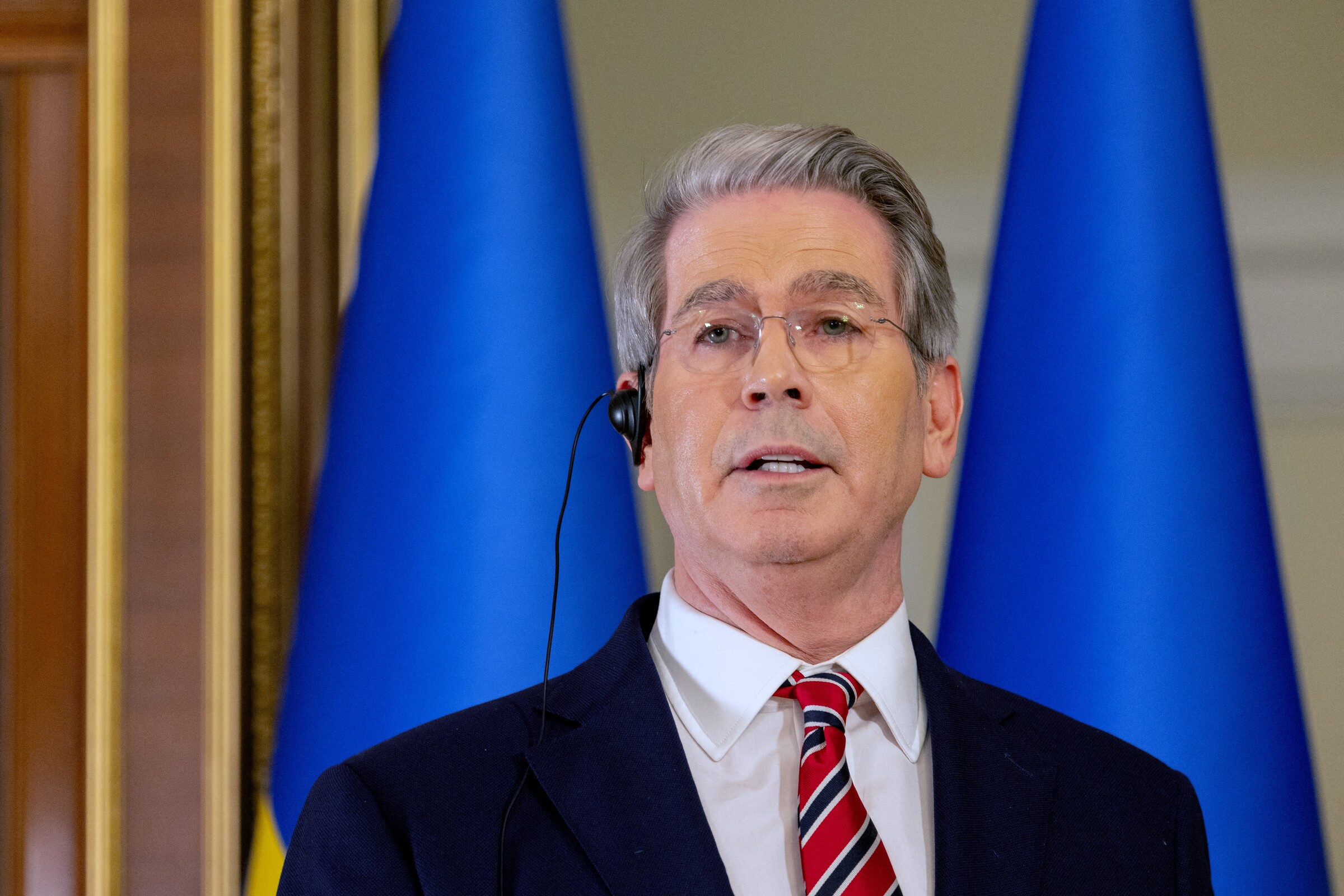Recently, some US lawmakers proposed using tariff revenue to provide payouts to the public, with a minimum of 600 USD for each adult and child. A family of 4 could potentially receive 2,400 USD from the government.
However, in an interview with CNBC on 19/8, US Treasury Secretary Scott Bessent dismissed this idea. "I think at some point, we can do that. But right now, President Donald Trump and I are focused on paying down the debt," he said.
 |
US Treasury Secretary Scott Bessent in Kiev, Ukraine on 12/2. Photo: AFP |
US Treasury Secretary Scott Bessent in Kiev, Ukraine on 12/2. Photo: AFP
Data from the US Treasury Department indicates that between April and July, the country collected approximately 100 billion USD in tariff revenue. In the August 19 interview, Bessent suggested that this year's revenue could exceed projections.
"I've said this year, we could see 300 billion USD. But I'm probably going to have to raise that estimate significantly. We're going to lower the deficit-to-GDP ratio, start paying down the debt and at some point give it back to the American people," he stated.
President Trump has previously praised the potential of increased tariff revenue, suggesting it could be used for various purposes, including reducing the national debt and potentially providing payments to Americans.
While Bessent didn't offer a specific revenue forecast for this year, he expressed hope that Americans could receive additional support through interest rate cuts.
The US Federal Reserve (Fed) has held its benchmark interest rate steady since December 2024. The probability of a rate cut in the mid-September meeting was once near 100% following a report showing a sharp decline in new jobs over the past three months. However, this probability now stands at 80% due to the July inflation report indicating price increases in some sectors.
Bessent explained that much of the increase in the producer price index (PPI) is due to the rising stock market. "The real issue here is high interest rates impacting the economy, especially the housing sector and low-income households struggling with credit card debt," he said.
Bessent believes that if the Fed cuts interest rates, homebuilding activity will accelerate, helping to reduce property prices in the long term. "If we keep suppressing homebuilding, what's going to happen to inflation in the next year or two?" he asked.
July data from the US Census Bureau shows that new home construction exceeded expectations, rising 5.2% compared to June. This followed three consecutive months of decline.
Ha Thu (Reuters)












